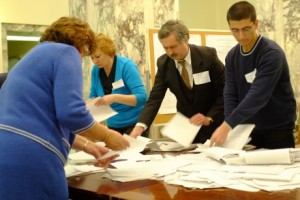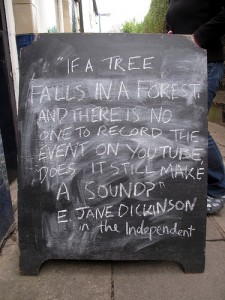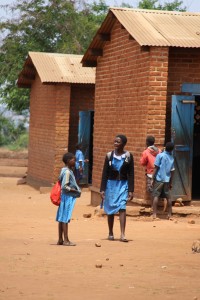TechChange is excited to announce a new partnership with Transitions (TOL), a Prague-based journalism and media training organization with a focus on the post-communist countries of Europe and the former Soviet Union. Running a variety of programs – from the publication of one of the first online magazines to cover political, social, economic and cultural issues in the region since 1999, to providing young reporters with intensive training on best journalistic practices – TOL has been a regional leader on media and democracy building efforts.
Bringing their expertise on media and journalism development to their target region through our eLearning environment, TOL will be running their course: “Reporting on Education,” adapting a course that the Guardian Foundation originally created for TOL and the BBC’s iLearn platform. And though journalist training is a broad endeavor, even when focusing on a particular region, we’re hoping that this course will help to not only train journalists, but also to elevate national and regional policy dialogue on the issues of educational reform, open governance and democratic accountability.

Counting gets underway at a polling station in Moscow following Russia’s Presidential election, 4 March 2012.*
This new institutional relationship and course topic comes at a time when the role of the media in promoting such topics is an ever salient issue, particularly in Eastern Europe. Over the past few months, the Kremlin has tightened control over various aspects of civil society and acted to counter what it views as foreign interference in Russia’s sovereign affairs, moves that included booting USAID, a key funder of media training and other efforts, out of the country.
TechChange has helped organizations address these challenges and co-authored a piece in the Huffington Post (USAID’s Eviction From Russia: An Opportunity for Online Learning as E-Development) expressing that:
“there is reason to believe that using widely-available technology, democracy promotion organizations have the potential to greatly influence dialogue by amplifying local practitioner voices, and giving domestic organizations a channel for collaboration with international experts.”
This is where we are hoping that our partnership with TOL will further distribute valuable content – including across closed or semi-closed borders – and build up the capacity of a core group of journalists to report in an informative and engaging way on the sometimes complicated field of education. After all, the task of training journalists in this case isn’t geared just toward building a better media, but also a better, more equitable education system and more modern and democratic societies. We’re hoping that this first course will be yet another worthwhile addition to this process.
*Photo Credit: Credit: OSCE/Jens Eschenbaecher
Interested in digital activism and citizen journalism? Check out our 104 course on digital organizing, which will be run January 7 – February 1!



